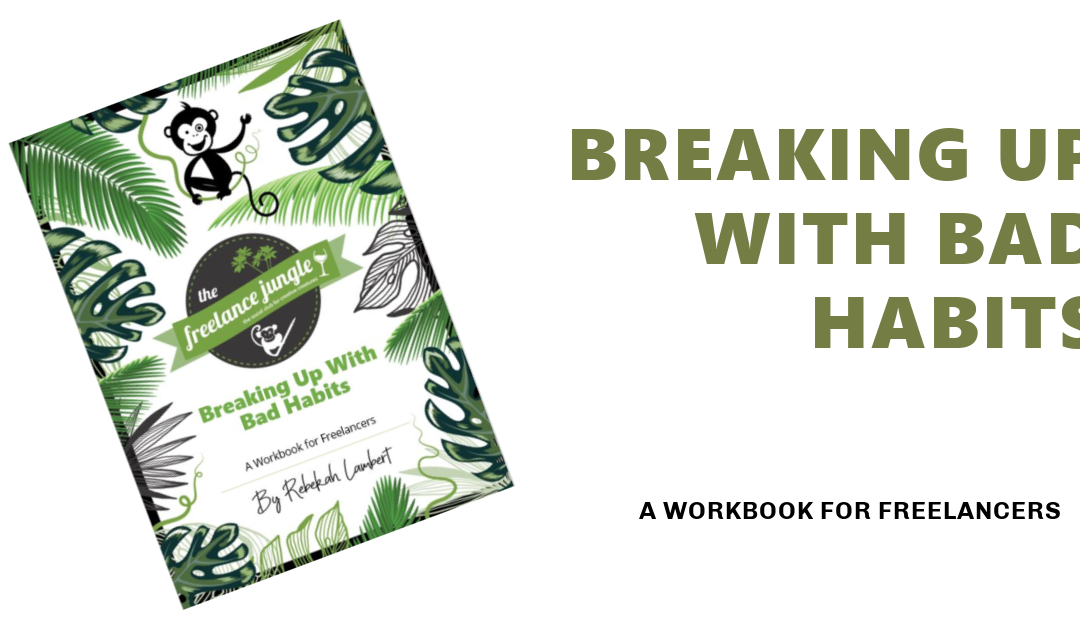Our freelancing journey is a mix of experiences, knowledge, and the decisions we’ve made. We absorb insights and adapt our practices along the way, moulding our working identity and creative approach. However, this constant evolution can inadvertently give rise to bad habits or misguided assumptions.
Despite our best intentions, these habits can occasionally act as roadblocks to our progress. From neglecting to update pricing structures to avoiding hard conversations with clients, these patterns can create unnecessary stress and hinder our growth as freelancers.
Recognising and addressing these habits is essential for our continued success. It requires a willingness to reflect on our practices, confront our shortcomings, and embrace change.
Meet the Breaking Up with Bad Habits: A Workbook for Freelancers
That’s where the Breaking Up with Bad Habits: A Workbook for Freelancers comes in. Crafted by Rebekah Lambert, founder of the Freelance Jungle and huge lived experience expert in bad habit acquisition, this Patreon exclusive resource offers practical tools and strategies for identifying and overcoming detrimental habits.
With carefully crafted exercises and guidance, you’ll discover newfound clarity and confidence to break free from negative patterns and unleash your full potential as a freelancer.
How can facing bad habits help freelancers?
We can become experts at pulling things together. Sometimes, we learn the hard way. Often, we make a call in that moment is often right for the time.
But as time goes on, it can look like:
- Fixing an issue in a moment and not circling back to check it’s still valid. For example, setting your prices and not updating them again
- Freelancers often discuss late-paying clients in forums, which might lead you to believe that you cannot solve the problem personally with your clients
- Doing something without even thinking about it. For example, always being available to your client on the phone or via email instead of setting boundaries
- Not facing hard conversations with clients for fear of making them angry or losing them, resulting in pressurised working arrangements, added stress, and even resentment
- Choosing short-term relief over long-term change. Such as getting stuck in a cycle of procrastination because you’re offering a service that desperately needs to be retired or updated because you no longer enjoy the work
- Making stress-informed and even trauma-informed decisions. Like ignoring red flags with new clients to get a deposit because you can’t seem to get existing clients to pay on time
- Relying on potentially faulty assumptions, like asking other people to price your products and services for you
- Not looking back on decisions to learn from them, because you’re scared it’ll make you doubt your skills, client management, or freelancing abilities
- Judging clients and fellow freelancers instead of depersonalising problems

